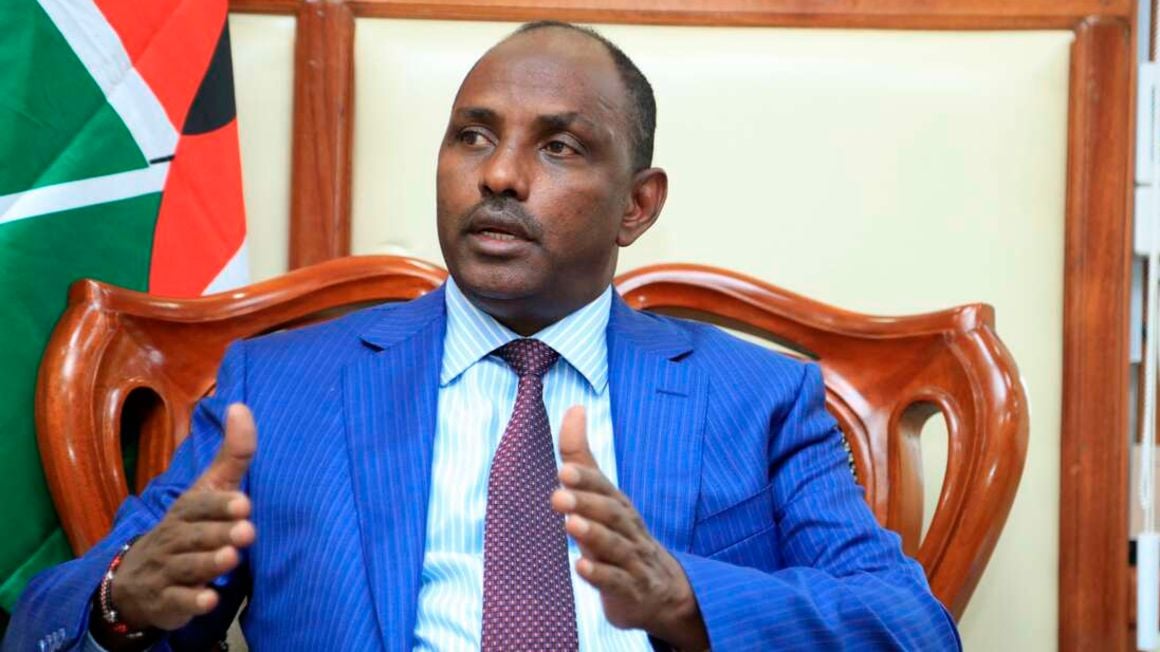
Treasury Cabinet Secretary Ukur Yatani. FILE PHOTO | NMG
Summary
- In January, Kenya secured deals to suspend debt service with the Paris Club of countries and other creditors, including China, covering the six months to the end of June this year.
- Now, Treasury Cabinet Secretary Ukur Yatani has asked richer nations to extend the relief for another year to ease budget deficits.
The Treasury is seeking for an extension of public debt repayment moratorium from rich countries beyond the June deadline, arguing that poor nations are yet to recover from the Covid-19 pandemic.
In January, Kenya secured deals to suspend debt service with the Paris Club of countries and other creditors, including China, covering the six months to the end of June this year.
Now, Treasury Cabinet Secretary Ukur Yatani has asked richer nations to extend the relief for another year to ease budget deficits.
Under those deals, which fall under the G20’s Debt Service Suspension Initiative (DSSI) to offer poor nations debt relief, Kenya is deferring payments worth $600 million (Sh65.4 billion) due in the period.
The deferred amount, which includes $378 million (Sh41.2 billion) to China alone, will be paid over five years after a grace period of one year.
The moratorium will see Kenya repay the money over five years, with a one-year grace period, reducing the level of debt service that has fomented a crisis following a decline in revenues as a result of the pandemic.
“We propose the enhancement of the Debt Service Suspension Initiative (DSSI) through extension of the consolidation period for a further one year to June 2022. This action will yield additional external resources, addressing debt vulnerabilities and providing liquidity,” Mr Yatani during the conference of African finance, planning and development ministers.
He added that loan repayments were reaching unsustainable levels as exports shrink and currencies depreciate, making it difficult for poor countries to spend on health and support small business while keeping their debt obligations.
The impact of the Covid-19 pandemic has battered Kenya’s tax revenue collection at a time when more of its debts are falling due and as it is still grappling with gaping fiscal deficits.
Tax collections in the eight-month period through February 2021 were Sh89.19 billion lower than the Sh995.38 billion collected in a similar period the year before.
The Jubilee administration has ramped up spending since 2013 to build new roads, a modern railway, bridges and electricity plants, driving up borrowing to plug the budget deficit.
The increased debt has seen Kenya commit more than half of taxes to paying loans, leaving little cash for building roads, affordable housing and revamping of the ailing health sector.
But faced with revenue shortfalls amid the coronavirus-related disruptions and the push to complete projects ahead of President Uhuru Kenyatta’s exit in 2022, the Treasury is expected to accelerate borrowing over the next two years.
For nearly two years now, it has abandoned expensive commercial debt to cut back on ballooning repayments, and sought cheaper loans from the International Monetary Fund (IMF) and the World Bank.
“Addressing effects of the lingering pandemic and restoring economic recovery will require significant additional external financing, without which economic policy makers face difficult trade-offs between meeting their citizens’ basic needs, including vaccinations, and maintaining macroeconomic stability,” Mr Yatani said.





No comments :
Post a Comment